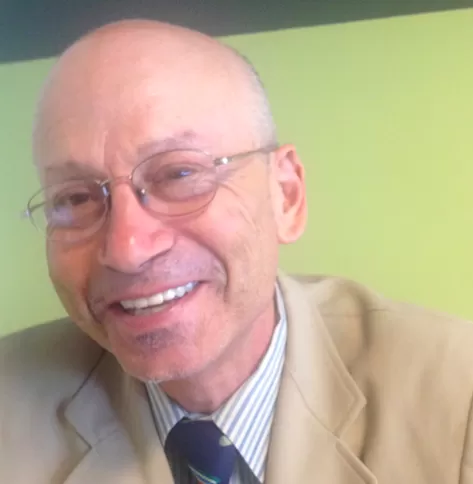Irvin Dawid discovered Planetizen when a classmate in an urban planning lab at San Jose State University shared it with him in 2003. When he left San Jose State that year, he took with him an interest in Planetizen, if not the master's degree in urban & regional planning.
As a long-time environmental activist, he formed the Sustainable Land Use committee for his local Sierra Club chapter and served six years on the Bay Area Air Quality Management District’s Advisory Council from 2002-2008. He maintains his interest in air quality by representing Sierra Club California on the Clean Air Dialogue, a working group of the Calif. Environmental Dialog representing business, regulatory and public health/environmental interests.
Major interests include transportation funding, e.g., gas taxes, vehicle miles traveled (VMT) fees, road tolls and energy subsidies that lead to unlevel playing fields for more sustainable choices.
He hails from Queens (Bayside) and Long Island (Great Neck); received an AAS in Fisheries & Wildlife Technology from SUNY Cobleskill and a B.S. from what is now Excelsior College.
After residing for three years on California’s North Coast, he’s lived on the San Francisco Peninsula since 1983, including 24 years in Palo Alto. Home is now near downtown Burlingame, a short bike-ride to the Caltrain station.
He’s been car-free since driving his 1972 Dodge Tradesman maxi-van, his means to exit Long Island in 1979, to the junkyard in 1988.
Major forms of transportation: A 1991 'citybike' and monthly Caltrain pass, zone 2-2. "It's no LIRR, but it may be the most bike friendly train in America."
Irvin can be reached at [email protected]
Midwest Gets Taste Of High(er) Speed Rail
The speedometer on the Chicago to St. Louis train hit 110 mph - and stayed there for five minutes, but it was enough to elevate the spirits of Transportation Secretary Ray LaHood and the other dignitaries on-board. Normal speeds top out at 79 mph.
Carbon Offsets Take Center Stage in California's Cap & Trade Program
With the nation's first, broad application of cap & trade to reduce greenhouse gas emissions set to begin on January 1, <em>The New York Times</em>' environmental reporter Felicity Barringer writes about the key role of carbon offsets.
Garbage Fight Pits Bay Area Cities Against Outlying County
Is waste disposal a local or regional issue? A new CA law written by a S.F. lawmaker nullifies a voter-approved Solano County measure that limits the amount of outside garbage their landfill can accept. It is being challenged by environmental groups.
Scrutiny of Electric Vehicles Follows Bankruptcy of Subsidized Battery Manufacturer
Electric-car-battery manufacturer A123 Systems received $249 million in federal grants. It filed for bankruptcy on Oct. 16, prompting Bloomberg reporter Angela Greiling Keane to look at the progress of President Obama's goal of 1 million EVs by 2015
Parklets for the Suburbs?
Sustainable real estate developer, A-P Hurd asks some fundamental questions about the on-street parking in her Seattle neighborhood and concludes that residents should be able to do more than park cars with the spots in front of their homes.

























